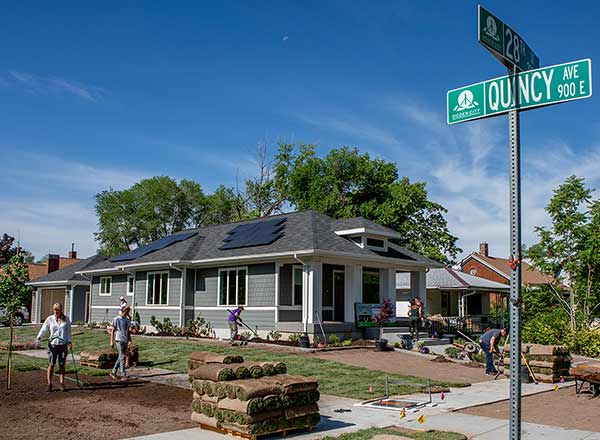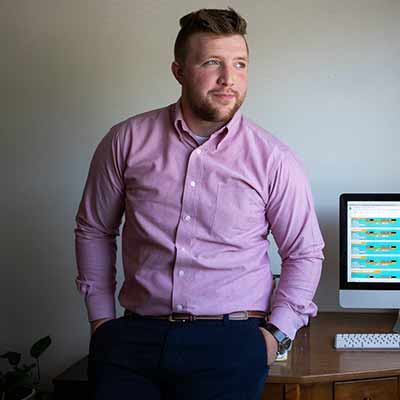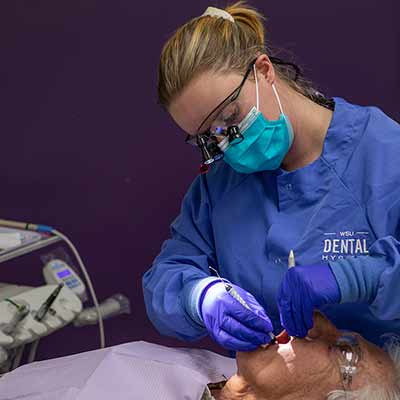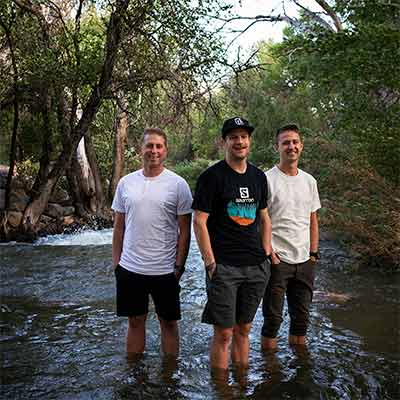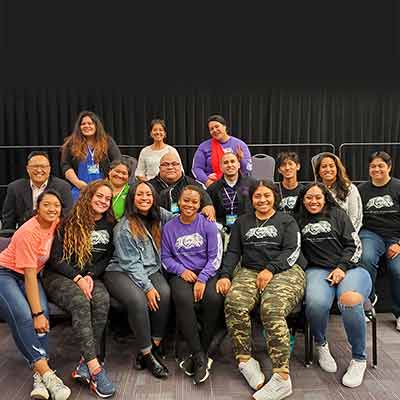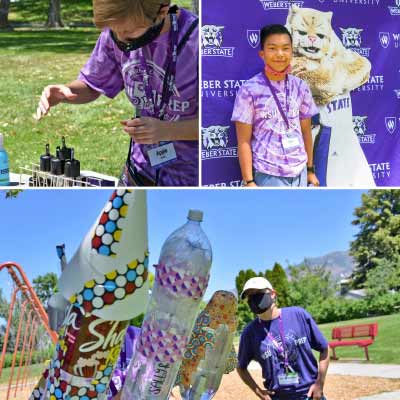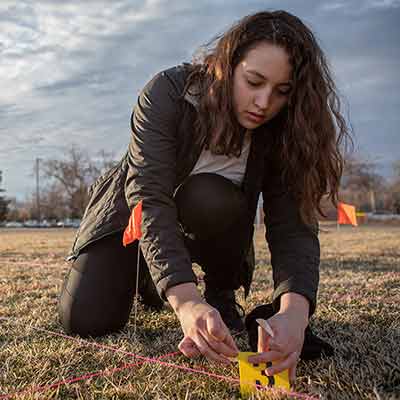Weber State prides itself in equipping students to build a more sustainable future, whether that’s through community programs such as the Empower Northern Utah Light Bulb Exchange, which collectively reduced energy bills for participants by $40,000 each year, or quickly pivoting to virtual for events such as our Intermountain Sustainability Summit.
Here are two more ways WSU boosted its sustainability efforts during the 2019–20 academic year:
Net-Zero Home
Students from the Department of Construction & Building Sciences had the opportunity to build a “netzero” home for their senior project, even being named finalists in the 2020 Department of Energy Solar Decathlon. The home is designed in a way that nearly eliminates all energy bills, with costs to operate the home estimated at just over $100 annually or around $9 per month to be connected to the electrical grid.
For the project, the students were able to help with every aspect of the futuristic home, from excavation to finish work. They quickly turned into online project managers when the COVID-19 pandemic halted a lot of in-person work on the project in March.
“It was fun to be able to teach them that this is real life,” said Jeremy Farner, WSU Building Design & Construction associate professor. “Nothing goes exactly how it’s planned.”
The home went on the market in September, and the proceeds from the sale will be used to build another net-zero home next year.
Weber State is on track to meet its goal to become carbon neutral by 2050 ahead of schedule.
Sustainability Attribute
An incredibly powerful step the university has taken toward sustainability this year is adding a sustainability attribute to courses, said Bonnie Christiansen, academic sustainability coordinator for the Sustainability Practices and Research Center (SPARC).
Faculty can now apply to have the sustainability attribute added to their course, allowing students to search their classes specifically for sustainability. It can be applied to any course that meets requirements. For instance, if an English course has a module or writing assignment about sustainability, it could meet the criteria for the SUS attribute.
“My personal goals are to make sure that every student that graduates from Weber State understands the importance of sustainability and how to incorporate it at home and in their careers,” Christiansen said.


